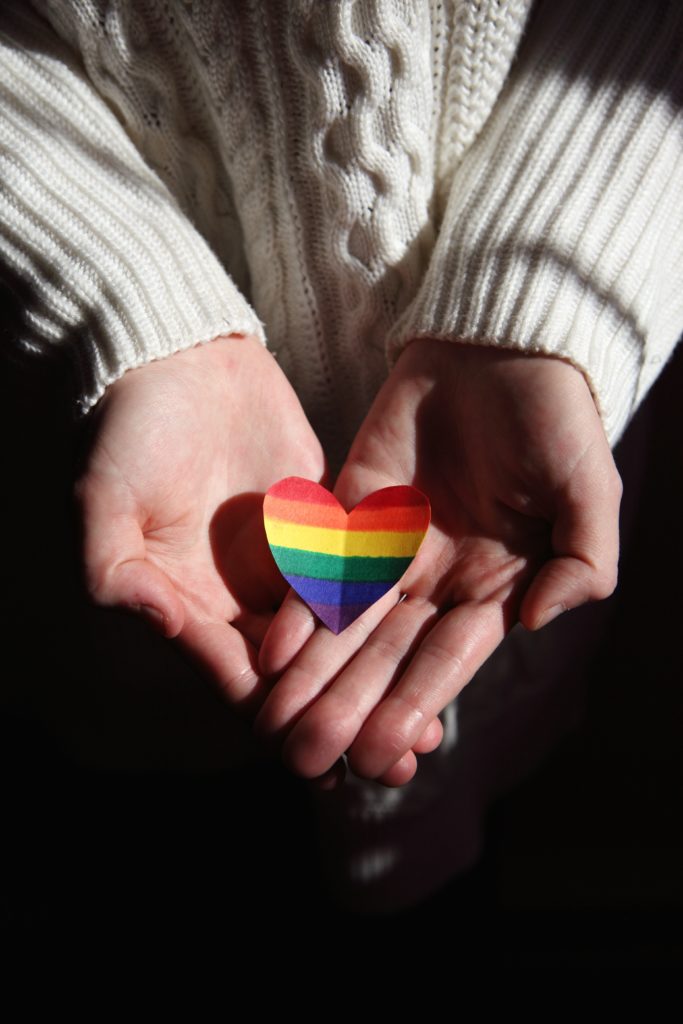Table of contents
Substance abuse is a significant problem among members of the lesbian, gay, bisexual, transgender, and queer/questioning (LGBTQ) community. From tobacco use, alcohol abuse, and binge drinking to the use of harder drugs like methamphetamine, cocaine, heroin, and other opioids, many people in the sexual minority struggle with addiction. Statistics have shown that LGBTQ adults are more than twice as likely as their heterosexual counterparts to use illicit drugs and almost twice as likely to suffer from a substance use disorder (SUD) [1].
Despite a growing trend of acceptance in the United States, many LGBTQ individuals face some level of homophobia, social stigma, discrimination, and other challenges on a regular basis that those who identify as heterosexual do not. This may come from strangers, acquaintances, and even unintentionally from friends and family. They also face the near-constant threat of workplace harassment, bullying, and even hate crimes.
Due to the additional challenges, stressors, anxiety, depression, isolation, and other mental health problems LGBTQ individuals face, many of them turn to alcohol and drugs as a way of coping with these feelings. All of these factors strongly contribute to substance abuse issues, and as a result, should be addressed in LGBTQ substance abuse treatment. This is why it is important to choose a drug and alcohol detox facility that offers a safe, comfortable environment that is accepting and supportive of the LGBTQ lifestyle and can tailor treatment to meet unique needs [2].
Substance Abuse and Co-Occurring Disorders in the LGBTQ Community
Clinical depression, stress, and anxiety disorders are very common among members of the LGBTQ community. These individuals are also prone to mood disorders, eating disorders, and other types of psychiatric problems, and many turn to abusing drugs or alcohol as a coping mechanism. A person with co-occurring disorders, sometimes called dual disorders, has been diagnosed with a mental health disorder and a substance use disorder (SUD) at the same time. Co-occurring disorders often feed off of one another and make it extremely challenging for an individual to overcome them, and depression and anxiety are often underlying issues.
Related post: The Link Between Anxiety and Addiction: What’s the Connection?
A 2016 report by the Substance Abuse and Mental Health Services Administration found that about 39 percent of LGBTQ adults had used illicit drugs in the past year. This is more than double the number of heterosexual adults included in the same report (roughly 17 percent). Additionally, the same report found that about 15 percent of LGBTQ people reported having a substance use disorder (SUD) in the past year, compared to only 7 percent of non-LGBTQ people [3].
LGBTQ Substance Abuse Statistics By the Numbers
According to a 2017 Accelerating Acceptance GLAAD study:
- 2 percent of the total population of the U.S. identifies as LGBTQ
- 20 percent of people aged 18-34 identify as LGBTQ
- 12 percent of people aged 35-51 identify as LGBTQ
- 7 percent of people aged 52-71 identify as LGBTQ
- 5 percent aged 72 or older identify as LGBTQ
- People who identify as gay or lesbian are more than twice as likely as those who identify as heterosexual to have a “severe” alcohol or tobacco use disorder
- People who identify as bisexual are three times as likely to develop a substance use disorder
- People who are unsure how to identify their sexual identity are five times as likely to have a SUD
- Transgender students are two and a half times more likely to use drugs than cisgender students (students whose gender identity matches their birth sex)
- 58 percent of Australian LGBTQ youths listed homophobia as a reason for drug and alcohol use [4]
LGBTQ Substance Abuse and Addiction Treatment Options
To properly aid in their recovery, LGBTQ individuals should seek a treatment facility that is equipped to meet their unique needs, address the challenges they face, and that is accepting, supportive, and understanding regarding the discrimination and struggles they face in everyday life as sexual minorities.
Briarwood Detox Center is a treatment center that offers a safe, comfortable drug and alcohol detox environment that is accepting and supportive of the LGBTQ lifestyle, along with staff members who understand LGBTQ issues and have positive and supportive attitudes toward helping resolve any substance abuse or underlying mental health issues that may arise due to them.
There is Help When You’re Ready to Make the Call
At Briarwood Detox Centers in Austin and Houston, TX, and Colorado Springs, CO, all LGBTQ individuals who are working to achieve a life of sobriety will find the highest quality addiction treatment in a space that fosters acceptance for all, encourages honest and open communication, and meets your unique treatment needs in a judgment-free environment. If you or a loved one are struggling with addiction and feel like you are ready to take the first step towards building a lifetime of sobriety, please call (512) 262-4426 or contact us online today.
References:


